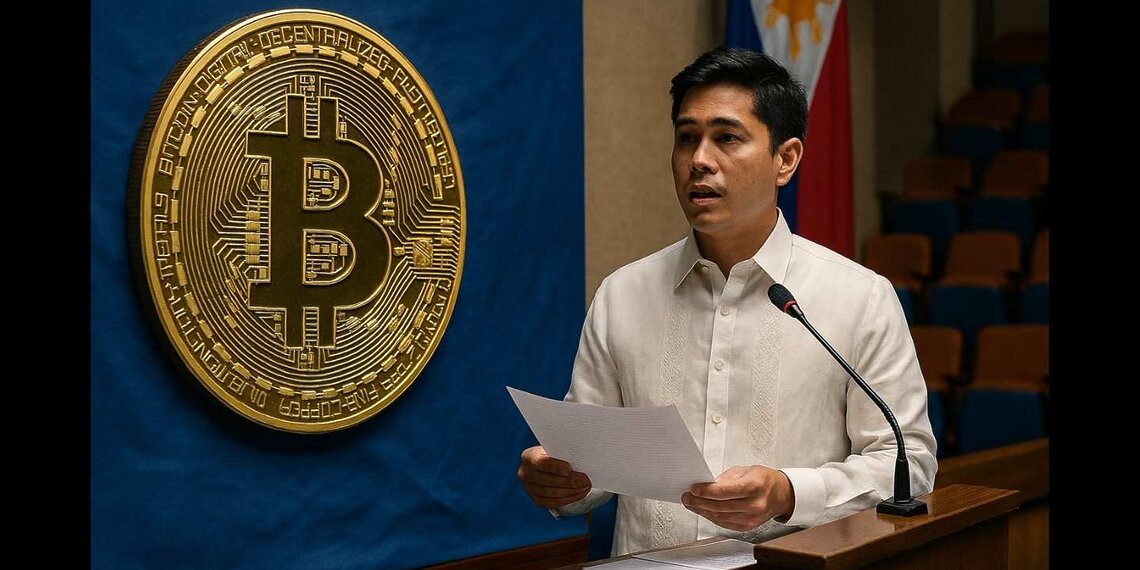Philippine lawmakers have taken a bold step toward integrating cryptocurrency into national policy by proposing a bill to establish a Strategic Bitcoin Reserve. Spearheaded by House ICT Committee chairperson Migz Villafuerte, the bill, formally known as House Bill 421, calls on the Bangko Sentral ng Pilipinas (BSP) to acquire 2,000 BTC annually over five years. These assets would be held in trust for two decades, serving as a long-term financial safeguard.
Villafuerte emphasized that the initiative aims to diversify the country’s financial assets and enhance economic security. He cited Bitcoin’s strong performance, noting its compound annual growth rate of approximately 40% over the past five years. According to him, accumulating BTC could help the Philippines achieve financial stability and prepare for the evolving global crypto economy.
The proposal aligns with a broader international trend. Countries like Switzerland and Poland are considering adding Bitcoin to their national reserves, while Hong Kong’s legislator Wu Jiezhuang has publicly supported similar measures. Villafuerte believes the Philippines should not fall behind in this global shift.
Global Interest in Bitcoin as a National Asset
The Philippines’ proposed Bitcoin reserve mirrors discussions happening in other parts of the world. In the United States, a recent policy report released on July 30, 2025, following a 180-day review under President Donald Trump, explored the idea of creating a Strategic Bitcoin Reserve using nearly 200,000 BTC seized by federal agencies. Analysts suggest this could elevate Bitcoin’s role as a national asset and influence global market dynamics.
China, however, appears to be taking a different approach. In April, municipal authorities reportedly sold 15,000 BTC worth $1.2 billion to address budget shortfalls. Meanwhile, Japan’s Metaplanet has embraced a strategy similar to the Philippines’ proposal, now holding 18,888 BTC after a recent acquisition of 775 BTC.
If approved, the Philippines would become one of the first Asian nations to formally include Bitcoin in its national reserves, signaling a significant shift in how digital assets are shaping global economic policy.
Frequently Asked Questions (FAQs)
- What is the Strategic Bitcoin Reserve Act?
It’s a proposed law for the Philippines to acquire 2,000 BTC annually for five years and hold them for 20 years.
- Why is the Philippines considering Bitcoin for its national reserves?
Lawmakers see Bitcoin as a high-growth asset that can boost financial stability and economic security.
- Are other countries adopting similar Bitcoin reserve strategies?
Yes, nations like Switzerland, Poland, and Japan are exploring or implementing Bitcoin holdings in their reserves.










